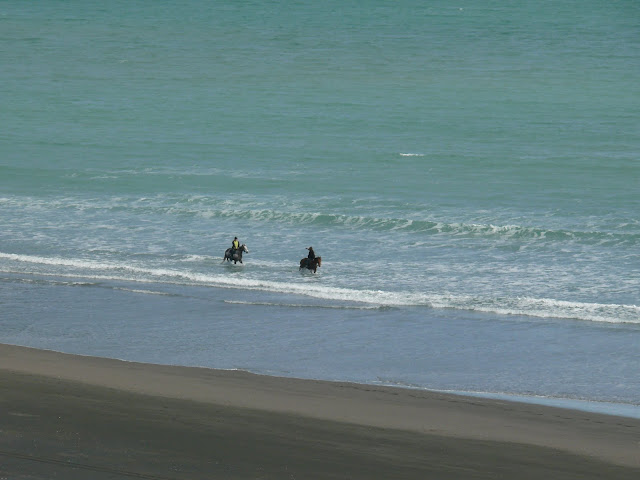From Wellington we had Rex Baynes talk about the National Pest Management Strategy for an awful bee pest, American Foul Brood.
Jane Lorimer showing us the parts of a hive.
Jane Lorimer, a professional Waikato beekeeper (of Lorimers Honey) and Past President of the National Beekeepers' Association, talked about the queen's role in keeping the hive healthy, and also gave us a hands on demonstration of how to inspect a hive. Jane talking about the importance of cleaning you hive tool when inspecting a different hive.
Her husband, Tony, came and contributed in an informal way, and also collected and returned Rex to the airport.Tony showing how there's no need to panic when a bee or two lands on you.
Warren Yorston, of Plant and Food Research, Ruakura, talked to us about managing varroa. Warren lives locally and keeps bees himself.
Jane demonstrating hive inspection techniques.
There's a queen there somewhere - I saw her before and after I took the photo.
These were a couple of Warren's hives, vigorous and healthy.
The people who attended were all very impressed with the day, and there was a constant stream of people asking about the Waingaroa Bee Club: who is the secretary / treasurer; how could they join; how much is it to join; where do we meet.
So here are the two things that made my heart sing, and which stunned the questioners:
The speakers all came and spoke for free. We did present each with a gift, but they asked for nothing. These are busy professional people who so love bees and beekeeping that they gave freely of their time, petrol, knowledge and expertise, with no expectation of recompense.
And the bee club which organised it? We have a core group of about ten. We have no committee, no subs, no bank account. We used to charge 50c per meeting to pay the rent of the local town hall supper room for our monthly meetings, but now we meet for free at Vinnie's, a local restaurant which offered for us to meet there, no obligation to buy anything. Joining is as simple as turning up on the night, and giving me an email address so I can send out emails reminding of meetings, and notes of what happened at the meetings.
The core group organised the venue and speakers, did baking, bought gifts, made home made ginger beer, and all the other jobs that go with such an even.
Maybe it's the example set by the bees: like a hive, our club is without the structure of a formal organisation, but is thriving through a sense of community instead.













































